
United States Army Air Forces 2nd Lt. William J. McGowan was 23 years old when he died near the village of Moon-sur-Elle in northern France. McGowan had grown up in the small town of Benson in western Minnesota, where he loved to ski. He attended Benson High School, St. Thomas Military Academy, and then the Missouri School of Journalism, where he received his degree in 1942. He worked as a journalist and editor, first for the United Press news service in Madison, Wisconsin, and then for his hometown paper, the Swift County Monitor-News, of which his father was the editor and publisher.
In 1943, McGowan was called to Eagle Pass Army Airfield in southern Texas for training. In December, he earned his pilot’s silver wings and his commission. A month later, he moved on to Harding Airfield in Baton Rouge for flight training on the P-47 Thunderbolt, the beloved workhorse of World War II American aviation. There he married Suzanne “Suki” Schaefer of Winona, Minnesota, and two months later was sent to England aboard Queen Mary. On May 15, he joined the 391st Fighter Squadron, 366th Fighter Group. Between May and June 5, McGowan made 10 sorties and flew four combat missions.
This story is from the July/August 2020 edition of Archaeology.
Start your 7-day Magzter GOLD free trial to access thousands of curated premium stories, and 9,000+ magazines and newspapers.
Already a subscriber ? Sign In
This story is from the July/August 2020 edition of Archaeology.
Start your 7-day Magzter GOLD free trial to access thousands of curated premium stories, and 9,000+ magazines and newspapers.
Already a subscriber? Sign In
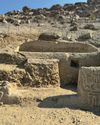
ORIGINS OF PERUVIAN RELIGION
While investigating looters' holes at the site of La Otra Banda in northern Peru's Zaña Valley, archaeologist Luis A. Muro Ynoñán of the Field Museum and the Pontifical Catholic University of Peru spotted carved blocks around seven feet below the surface.
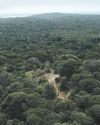
ISLAND OF FREEDOM
Many of the enslaved Africans sent to Brazil beginning in 1549 were from what is now Angola, where one of the most widely spoken languages was Kimbundu.
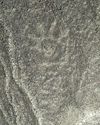
NAZCA GHOST GLYPHS
From the 1940s to the early 2000s, geoglyphs were discovered in the Nazca Desert of southern Peru depicting animals, humans, and other figures at the rate of 1.5 per year.

COLONIAL COMPANIONS
The ancestry of dogs in seventeenth-century Jamestown offers a window into social dynamics between Indigenous people and early colonists.
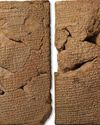
BAD MOON RISING
The British Museum houses around 130,000 clay tablets from ancient Mesopotamia written in cuneiform script between 3200 B.C. and the first century A.D.
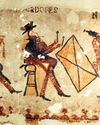
DANCING DAYS OF THE MAYA
In the mountains of Guatemala, murals depict elaborate performances combining Catholic and Indigenous traditions
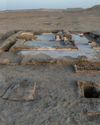
LOST GREEK TRAGEDIES REVIVED
How a scholar discovered passages from a great Athenian playwright on a discarded papyrus
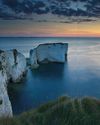
Medieval England's Coveted Cargo
Archaeologists dive on a ship laden with marble bound for the kingdom's grandest cathedrals
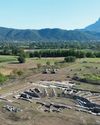
Unearthing a Forgotten Roman Town
A stretch of Italian farmland concealed one of the small cities that powered the empire
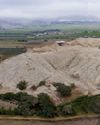
TOP 10 DISCOVERIES OF 2024
ARCHAEOLOGY magazine reveals the year's most exciting finds